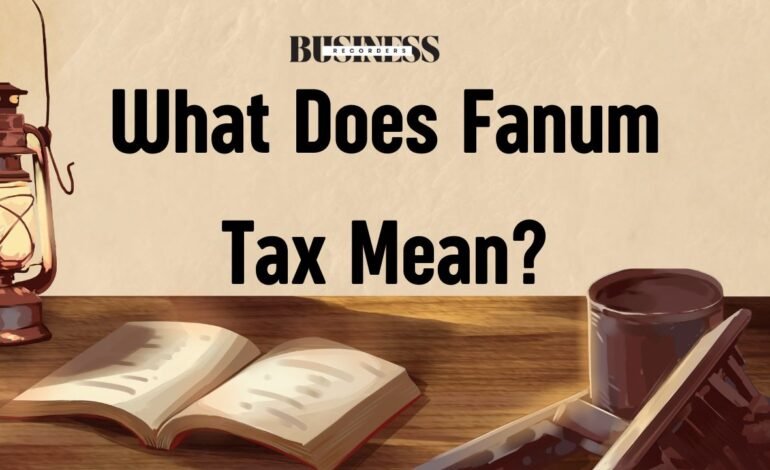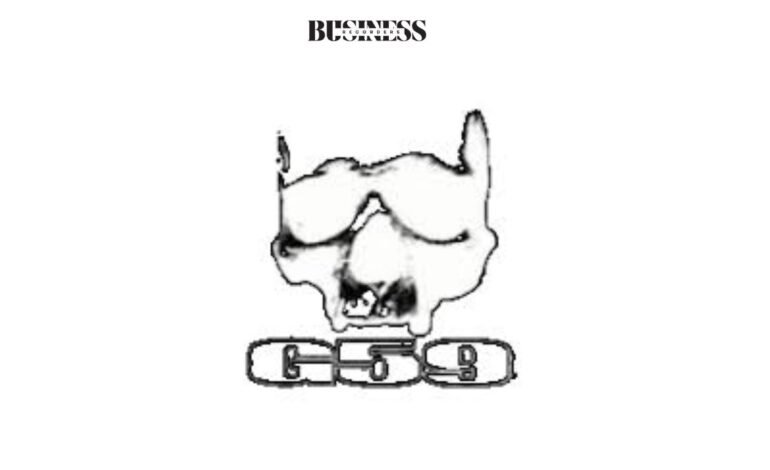
What Does Fanum Tax Mean?
Fanum tax is a term that has gained attention in various online communities, but not everyone knows what it means. In this article, we will answer the question “what does fanum tax mean” and explain its origin, usage, and significance. This guide is written in simple language so that everyone, including young students, can understand it easily.
What is Fanum Tax?
When people hear the term “fanum tax,” they might wonder if it’s related to taxes we pay to the government. The question is, what does fanum tax mean? Fanum tax is not an official tax from the government. It’s actually a term that started as a joke in online communities, especially within gaming and social media platforms. The phrase is used humorously when someone asks for or is expected to pay a certain amount of money or give something up in exchange for help, favors, or special access to something.
For example, in a group chat, someone might say, “You need to pay the fanum tax if you want to be part of this event!” It’s a playful way of saying that you need to give something, like money or a gift, to join. This shows that fanum tax is not real or official, but a funny way to talk about “paying” for extra benefits.
Where Did the Term Fanum Tax Come From?
The next question we should answer is, “what does fanum tax mean” in terms of its origin? Fanum tax originated in social media and meme culture. It became popular because of influencers and online personalities who used the term in their videos or posts. The word “Fanum” itself refers to a specific personality in the streaming world who joked about creating a tax for his followers. From there, the phrase caught on and spread across various online platforms.
People liked using the term because it sounded funny and was a playful way to talk about giving something to get something in return. It became part of internet slang and is now used in different contexts to joke about needing to pay up for something.
How is Fanum Tax Used in Conversations?
Another important part of answering the question “what does fanum tax mean” is understanding how people use it in everyday conversations. Fanum tax is often used in a lighthearted manner. People might say it when they want something from their friends, such as when they’re joking about getting a favor or a gift.
For example, if someone wants to borrow a friend’s car for the weekend, the friend might say, “Sure, but you have to pay the fanum tax first!” It’s a way of adding humor to the situation, making the request seem more fun rather than a serious demand. This usage shows how fanum tax is not a real tax but more of a playful way to negotiate.
Why Do People Like Using the Term Fanum Tax?
To understand fully what does fanum tax mean, we need to look at why it’s popular. People like using fanum tax because it adds a funny and creative twist to normal conversations. It allows people to joke about something that might normally feel uncomfortable, like asking for money or favors.
For example, instead of directly asking someone to help out with a task, a person might say, “You know you’ll have to pay the fanum tax for this!” This makes the conversation more lighthearted, and both people can laugh about it. It’s a way of easing tension and adding humor to daily interactions.
Is Fanum Tax a Real Tax?
When trying to understand what does fanum tax mean, one might wonder if there is any serious side to it. The answer is no—fanum tax is not a real or official tax. It doesn’t come from the government or any legal system. It’s purely a term that people use in a joking way online. There’s no actual money that needs to be paid unless it’s part of a fun agreement between friends.
In real life, taxes are usually required payments that people make to the government, but fanum tax is nothing like that. It’s entirely based on social interactions and jokes. So, if someone asks you to pay the fanum tax, don’t worry—it’s all in good fun!
Can Fanum Tax Have Any Consequences?
When we ask, “what does fanum tax mean,” it’s also worth exploring whether it can have any real consequences. Since fanum tax is not real, there are no official consequences. However, if someone takes the joke too seriously or expects something unreasonable from their friends, it could lead to misunderstandings.
For example, if a person asks their friend to pay the fanum tax in exchange for a favor and the friend thinks it’s just a joke, but the first person is serious, it could cause confusion. In general, though, fanum tax is used in a light and humorous way, so these situations are rare.
Pros and Cons of Using the Term Fanum Tax
To give a clear understanding of what does fanum tax mean, it can be helpful to weigh the pros and cons of using the term. Let’s look at some benefits and drawbacks:
| Pros | Cons |
| Adds humor to conversations | Can cause confusion if taken seriously |
| Helps ease awkward requests | Not everyone may understand the joke |
| Builds a fun social dynamic | May be overused in some contexts |
From this table, we can see that fanum tax is generally used in a fun way but could be misunderstood if people don’t recognize the joke.
What are Examples of Fanum Tax in Action?
To better understand what does fanum tax mean, it’s helpful to look at some examples. Imagine you’re in a group chat with friends, and someone wants to borrow your new video game. You could reply with, “Sure, but don’t forget to pay the fanum tax before you get it!” Everyone in the chat would understand that this is just a joke, and it adds some humor to the situation.
Another example could be at a party when someone asks to join a game. The person hosting might say, “You can join, but you need to pay the fanum tax first!” It’s all about making interactions more lighthearted and fun.
Will Fanum Tax Stay Popular?
As we wrap up the question “what does fanum tax mean,” it’s worth thinking about whether this term will remain popular. Internet slang can change quickly, and new terms come and go all the time. However, because fanum tax is a fun and flexible phrase, it could stick around for a while.
People enjoy using playful language in their conversations, and fanum tax is simple, funny, and easy to understand. Even if it fades out over time, for now, it seems to be a popular way for people to add humor to their daily interactions.
Conclusion
To sum up, what does fanum tax mean? Fanum tax is an online slang term used to jokingly talk about paying or giving something in return for help or access to something. It’s not a real tax, but a fun way to make conversations more entertaining. The term originated from social media and has since become part of internet culture. People enjoy using fanum tax to add humor and ease to their interactions, though it’s important to remember that it’s all just for fun.
By learning what does fanum tax mean, we can better understand how internet slang evolves and how playful terms like this one can bring a little more laughter into our daily conversations.













